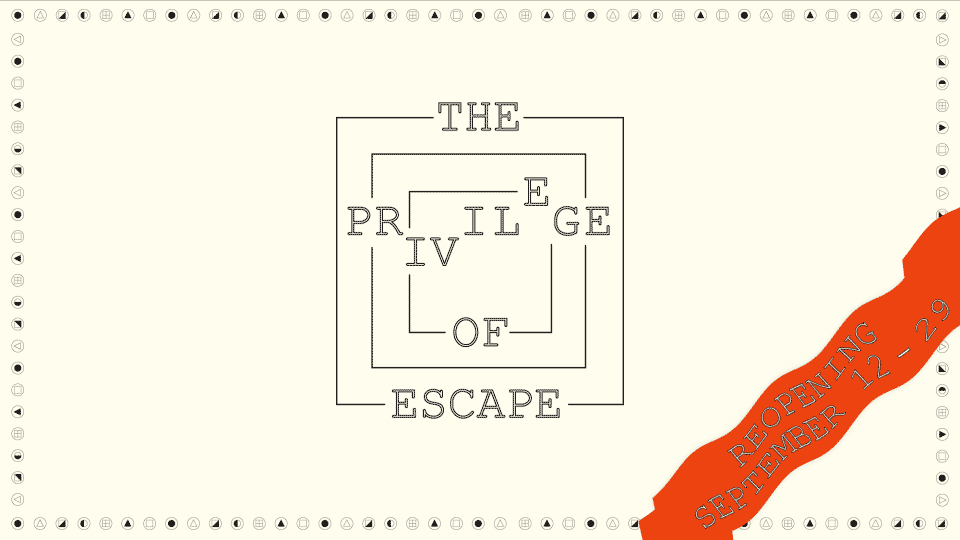Reflection
It’s been said, “When you’re accustomed to privilege, equality feels like oppression.”
Perhaps that’s why this conversation is so difficult. As each of us gains open eyes to the privileges we possess — be it gender, racial, socioeconomic, academic, able bodied, cishet gender, or the many other areas in which one may have the upper hand in a system of oppression — it gives us pause, and perhaps discomfort, to be confronted by the roles we play.
That discomfort has, over history, translated into a silence that solely benefits the privileged and continues to open wide the doors of racism, ableism, classism, homophobia, xenophobia, and the like.
The Privilege of Escape is an invitation for this conversation to continue, to come out of the shadows, and to enter public discourse. As people move through this work they are confronted with the ways they exist in the world and how they relate to others. They are challenged to examine this in ways they may never have before.
As someone whose work sits at the intersection of race and womanhood, I am constantly pushing my readers and students to ask the question, “Who am I protecting with my privilege?” My writing and teaching explores white privilege in particular. I encourage my readers and students to consider how their silence (a privileged take on any conversation of injustice) is indeed violence against those who are being harmed. In tandem with the work I do as a writer and educator, Puno’s The Privilege of Escape holds up a mirror to help examine where we stand in this conversation and its various intersections.
We must push ourselves to ask questions of our history, our systems, our ideology, and our responsibility. The very foundation of this country has been built on the premise of white supremacy, damaging patriarchy, exploitative capitalism, and a set of societal “norms” that benefit the few and continue to marginalize so many. With these types of roots our country has grown into a tree that yields modern manifestations of those very things. White privilege shows up as white men dropping out of high school being more likely to get a job than black men who have pursued and obtained a degree. Socioeconomic privilege shows up as healthy low-income people having greater health risks than higher-income people. Gender privilege shows up as for every 100 men being promoted to manager-level roles, only 79 women are moved up into similar roles.
The game of American life is rigged against some while benefiting others. A reality that should be unacceptable in a country that claims justice for all.
The way that lauded suffragist Carrie Chapman Catt used the argument, “White supremacy will be strengthened, not weakened, by women’s suffrage,” in her campaign for women’s rights reminds us that one can both occupy a space of marginalization as well as be a proponent of oppressing others. Though having suffered under the thumb of patriarchy, Chapman Catt still used her white privilege to push for an act of justice on behalf of gender, while completely erasing the women of color her “women’s rights movement” clearly did not include.
With privilege comes responsibility. The responsibility to pass the mic to the marginalized. The responsibility to demand dignity for groups deemed “other.” To use the resources, opportunity, and access granted to us to continue to lift those who are without.
The Privilege of Escape is an opportunity to hold ourselves, and each other, accountable. Puno’s brilliant braiding of art, culture, and the political opens a new door for the critical conversations necessary for moving toward the justice all people deserve.
– Rachel Cargle
New York City
July 2019
To continue to deep dive into the conversation of privilege and its various intersections, including race, gender, ability, and socioeconomics, please explore the following resources:
Books:
Privilege by Michael S. Kimmel and Abby L. Ferber
White Fragility by Robin D’Angelo
Nickel and Dimed by Barbara Ehrenreich
Organizations:
Teaching Tolerance | tolerance.org
Equality Now | equlaitynow.org
African American Policy Forum | aapf.org
Audre Lorde Project | alp.org



